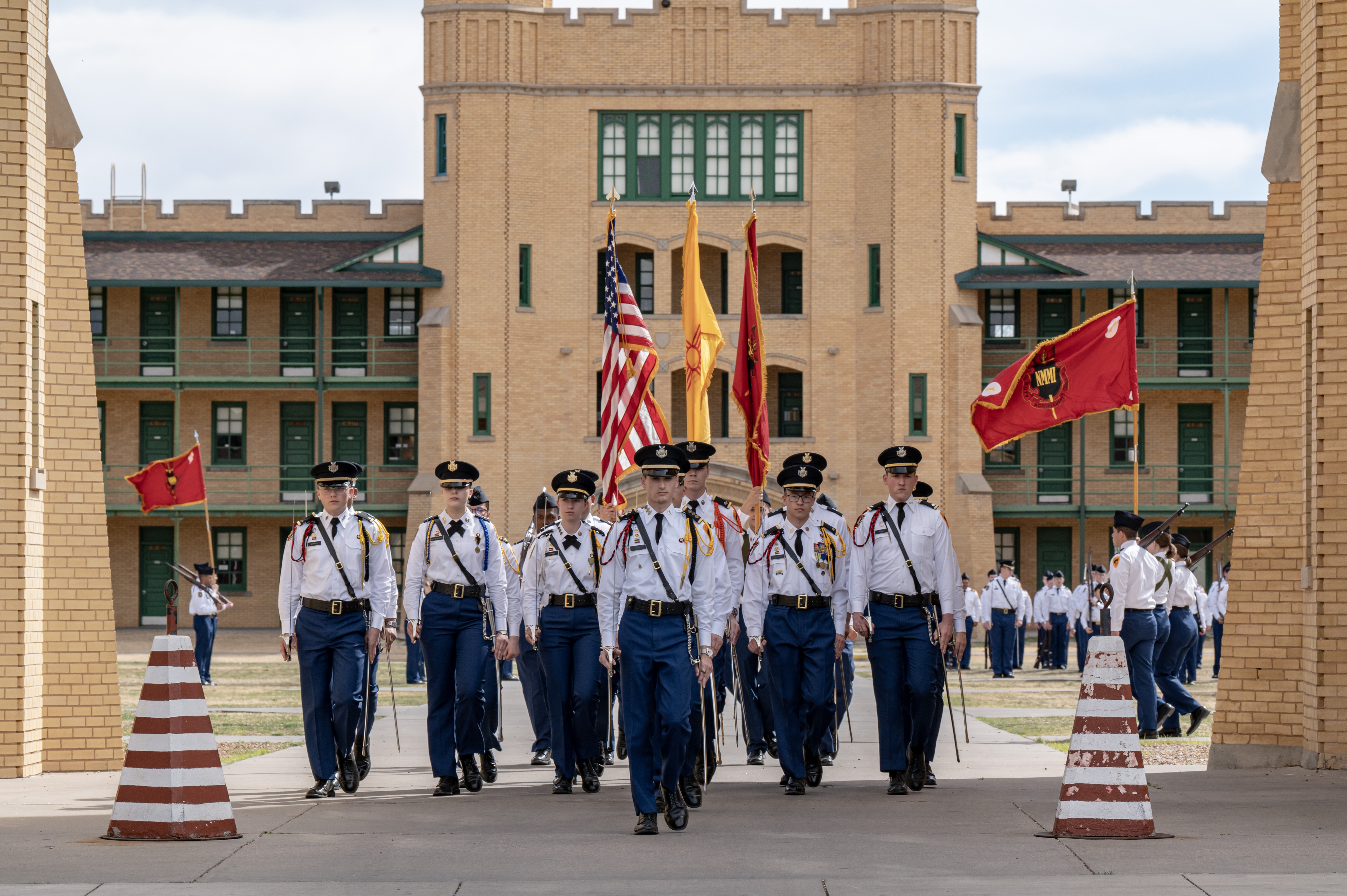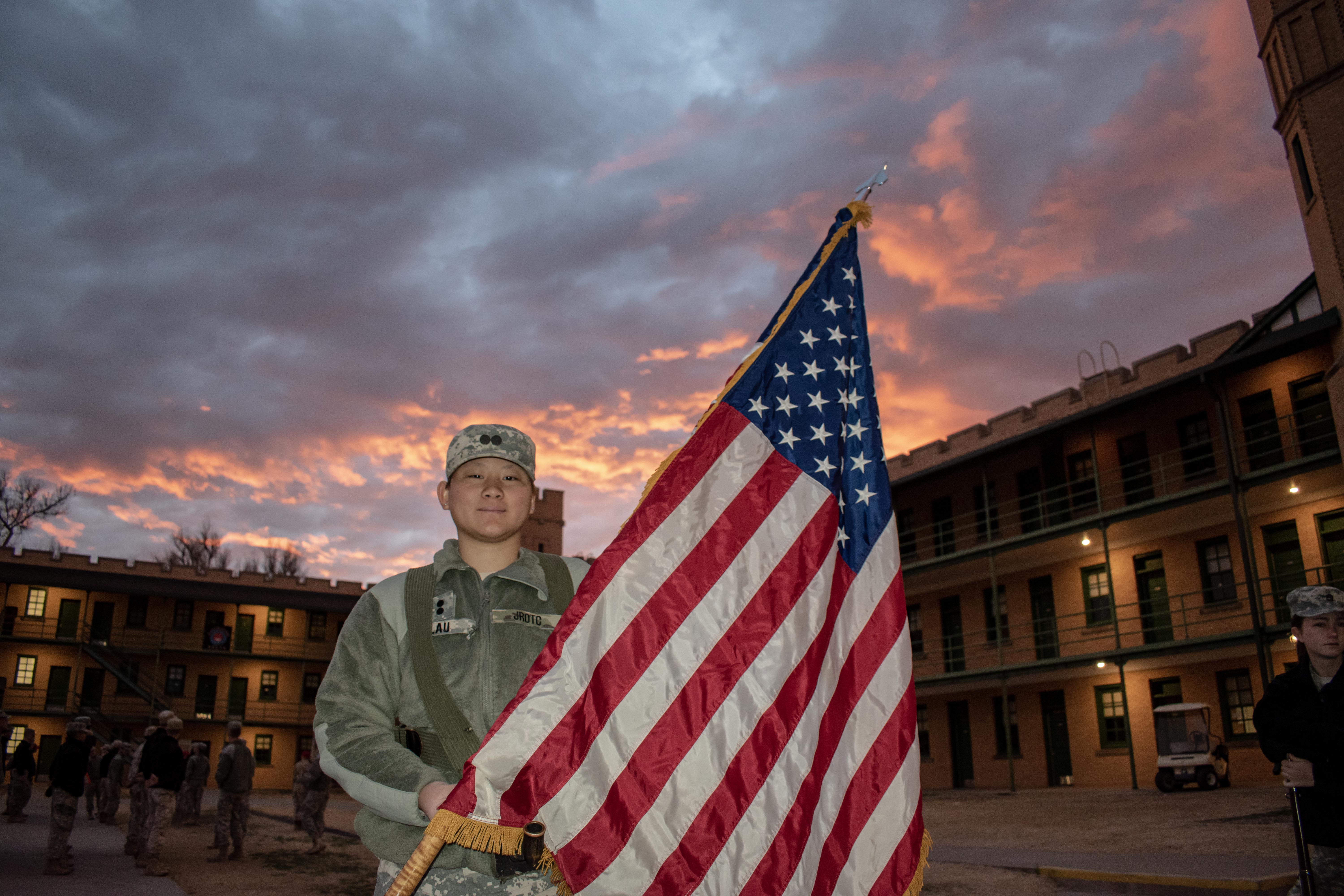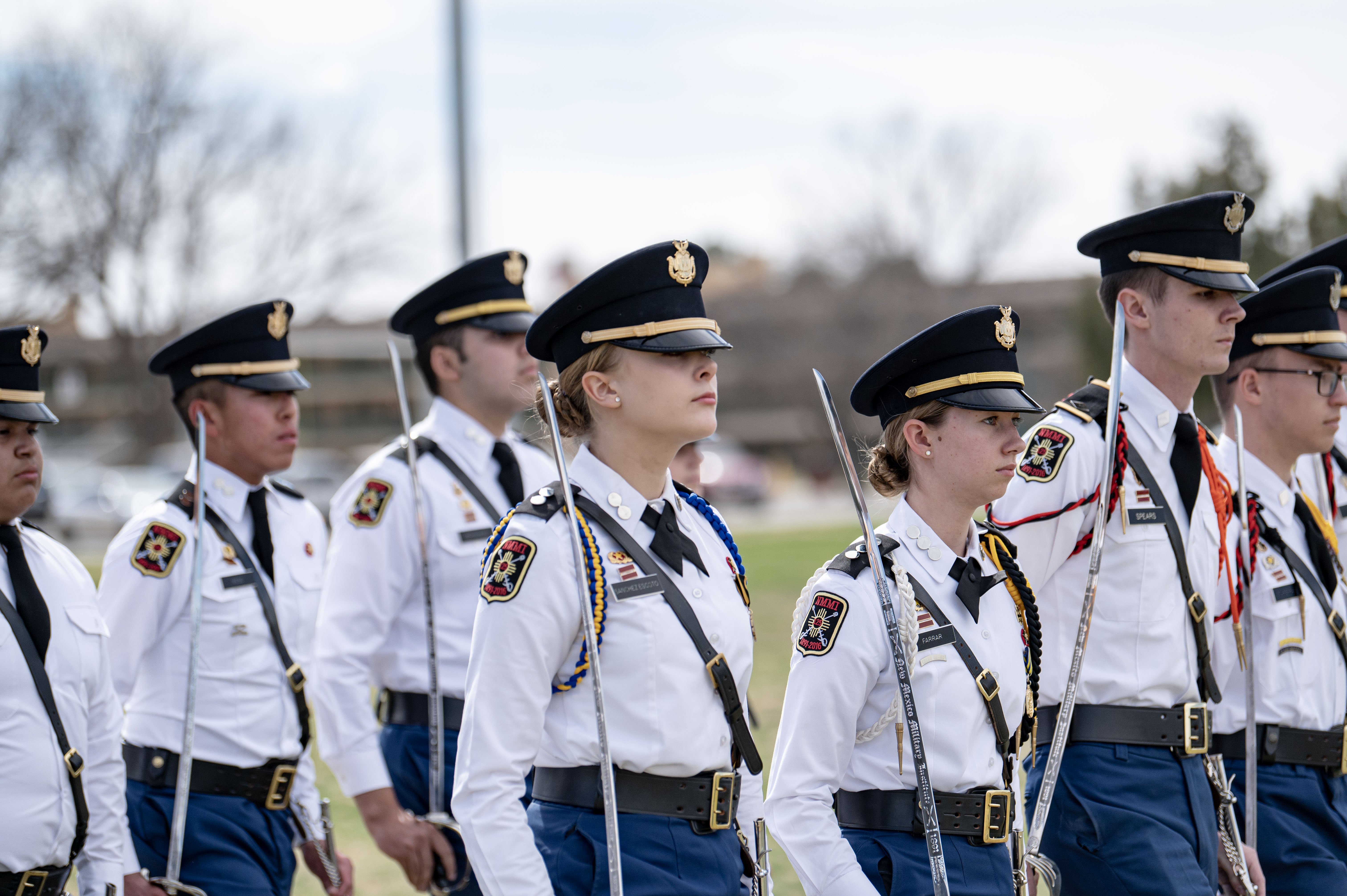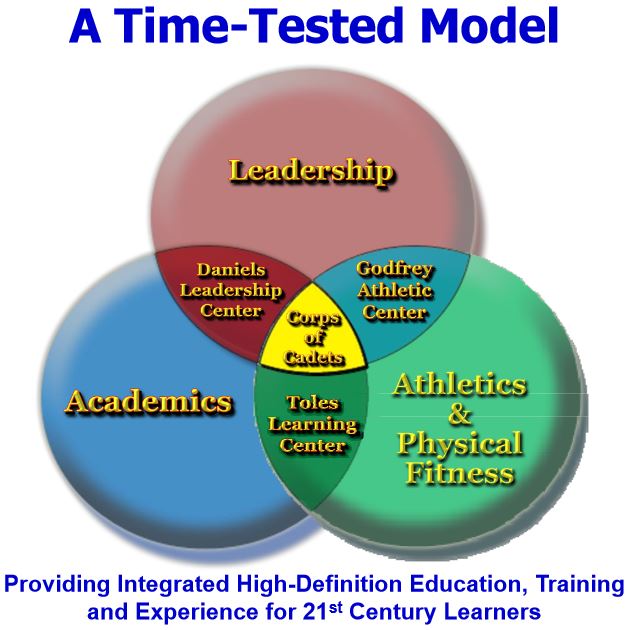General Information
 The New Mexico Military Institute (NMMI) was established in 1891 as a public military High School and Junior College in Roswell, New Mexico. Known as “the West Point of the West,” NMMI operates under the auspices of the State of New Mexico, under a dedicated Board of Regents that reports to the Governor of New Mexico. The school enrolls nearly 1,000 cadets at the junior college and high school levels each year from 45 states, 2 U.S. territories (Puerto Rico and American Samoa), and 35 foreign nations. The New Mexico Military Institute (NMMI) was established in 1891 as a public military High School and Junior College in Roswell, New Mexico. Known as “the West Point of the West,” NMMI operates under the auspices of the State of New Mexico, under a dedicated Board of Regents that reports to the Governor of New Mexico. The school enrolls nearly 1,000 cadets at the junior college and high school levels each year from 45 states, 2 U.S. territories (Puerto Rico and American Samoa), and 35 foreign nations.
Administration
Accreditations
New Mexico Military Institute’s Junior College program is accredited (2020) by the Higher Learning Commission. Contact the Higher Learning Commission at 230 South LaSalle Street, Suite 7-500, Chicago, Illinois 60604 or call 800-621-7440 for questions about the accreditation of our Junior College program. The organization’s website is https://www.hlcommission.org/.
Our College Preparatory High School program is accredited (2018) by Cognia. Contact the Alpharetta Office at 9115 Westside Parkway, Alpharetta, Georgia 30009 or call 888-413-3669 for questions about the accreditation of our College Preparatory High School program. The organization’s website is https://www.cognia.org/.
Institutional Vision

New Mexico Military Institute is a globally recognized secondary and post-secondary learning institution for young men and women that instills excellence in leadership, academics, and physical development within a structured environment empowering students to thrive in a dynamic world.
Institutional Mission
To educate, train, and prepare young men and women to be leaders capable of critical thinking and sound analysis, leaders who possess uncompromising character and leaders able to meet challenging physical demands.
Faculty Credo
Treat them as you would like your own treated. Teach them as you would like your own taught.
Historical Perspective
Roswell, New Mexico dates back to 1866 when it, then known as Rio Hondo, was a cowboy outfitting station on a cattle trail. It acquired a post office in 1873 as well as the name Roswell. This area of Southeastern New Mexico around Roswell, the historic border between the Comanche and Mescalero Apache tribes, was then only sparsely settled.

In 1891, Captain Joseph C. and Mabel Lea invited Robert S. Goss to start a military school similar to the school Goss directed in Fort Worth, Texas. In September, Goss Military Institute opened its doors to twenty-eight pupils. Struggling as a result of poor management and insufficient funds, Goss Military Institute did secure designation as a territorial school and a new name, New Mexico Military Institute, but had to close its doors in 1895.
An appropriations bill passed by the territorial legislature and a generous donation by a resident philanthropist, J.J. Hagerman, of a forty-acre plot of land on North Hill helped reopen the doors of New Mexico Military Institute in its present location on September 6, l898. The school provided eight years of academic work and the cadets were organized into two companies. After the Institute inaugurated the junior college in 1915, the school offered four years of high school (NCA accredited, 1917) and two years of college work (NCA accredited, 1938).
The Corps of Cadets operates under an Honor Code, instituted in 1921 by a vote of the Corps of Cadets. This Code is recognized as the primary means by which character development is accomplished at the New Mexico Military Institute. The Code requires all members of the Corps of Cadets act honorably in both word and deed. A cadet shall tell the truth at all times, not quibble or make evasive statements, do their own work and not cheat, plagiarize nor take unfair advantage. Each cadet is also responsible for maintaining these standards. A cadet will not only do what is right, but will have a desire to live by such a standard.
New Mexico Military Institute gained special recognition as a military school receiving the distinction as one of ten such distinguished institutions in 1909. In addition to retaining this distinction ever since, the school became a member of the Reserve Officer Training Corps program in 1916. NMMI sent 320 alumni and 163 officers into its country’s service during World War I. The school’s service to World War II was virtually unparalleled with over 170 young men losing their lives.
After experimentation with a four-year college in the nineteen fifties, NMMI returned to its high school and junior college program. With the support of a strong Early Commission (ROTC) Program in the junior college and special NCA recognition (1980) as a college-preparatory high school, the school has persistently increased its emphasis in recent years on its academic programs. Annually, approximately seventy cadets prepare for admission to the national service academies and join nine hundred thirty other young men and women in meeting the challenges of one of the nation’s most unique and finest preparatory schools.
NMMI Leadership Model/Process

Assessment Statement
At NMMI, assessment is an embedded continuous process for understanding, confirming and improving cadet success. NMMI’s commitment to assessment is being realized by the Institute’s involvement in the North Central Association’s Assessment Academy. The Institute has created an Assessment Academy Task Force to guide and lead assessment activities across all mission elements.
FERPA: Confidentiality of Cadet Records
Cadet records are accessed by faculty and professional staff for authorized academic-related purposes. The release of cadet records for off-campus use occurs only with a cadet’s knowledge and consent, or when required by law.
A cadet’s high school record is open for inspection by the cadet’s parents or guardians. College cadets and high school cadets taking college courses (college courses only) fall under Family Educational Rights and Privacy Act (FERPA) regulations and can limit access to their record as specified in federal law. Financially, New Mexico Military Institute considers all cadets, whose parents provide verification of their expenses, as a “dependent cadet” as defined by Internal Revenue Code of 1954, Section 152 for the IRS form 1098. The cadet must provide proof of “independent” status to the Registrar prior to the start of the third academic week. College cadets must elect whether or not their grades go to their parents through their matriculation form, or an invitation page inside of the cadet portal, “Self-Service”.
The Registrar is the custodian of the cadet’s academic record. A cadet’s academic record may include application for admission information, residency certificate, immunization certificate, date of school entry, cadet schedules and schedule changes, academic work completed, standardized achievement test scores, transcripts from previous schools attended, and various Veteran’s Administration forms.
Public information which may be released upon request includes a cadet’s name, photograph, address, telephone number, truncated date and place of birth, area of concentration, dates of attendance, height, weight, scholastic and/or athletic achievement, degree, previous schools attended and date of graduation. If a cadet does not wish for this public information to be released, the cadet must notify the Registrar during the first two weeks of classes in each semester. This is normally done during matriculation.
Cadets have the right to inspect and review their educational records within 45 days of the date of their request, but must specify which educational records. They have the right to request amendment of the records they believe to be in error. They can file a complaint with the Academic Dean, Registrar, or US Department of Education if they determine their rights have been violated. The address for such complaints is in the Registrar’s Office.
FERPA Annual Notice to Reflect Possible Federal and State Data Collection and Use
As of January 3, 2012, the U.S. Department of Education’s FERPA regulations expand the circumstances under which your education records and personally identifiable information (PII) contained in such records — including your Social Security Number, grades, or other private information — may be accessed without your consent. First, the U.S. Comptroller General, the U.S. Attorney General, the U.S. Secretary of Education, or state and local education authorities (“Federal and State Authorities”) may allow access to your records and PII without your consent to any third party designated by a Federal or State Authority to evaluate a federal/state-supported education program. The evaluation may relate to any program that is “principally engaged in the provision of education”, such as early childhood education and job training, as well as any program that is administered by an education agency or institution. Second, Federal and State Authorities may allow access to your education records and PII, without your consent, to researchers performing certain types of studies, in certain cases even when we object to or do not request such research. Federal and State Authorities must obtain certain use-restriction and data security promises from the entities that they authorize to receive your PII, but the Authorities need not maintain direct control over such entities. In addition, in connection with Statewide Longitudinal Data Systems, State Authorities may collect, compile, permanently retain, and share without your consent, PII from your education records, and they may track your participation in education and other programs by linking such PII to other personal information about you that they obtain from other Federal or State data sources, including workforce development, unemployment insurance, child welfare, juvenile justice, military service, and migrant cadet records systems.
Equal Opportunity Policy
NMMI is open to all persons regardless of race, color, religion, gender, or national origin who are otherwise eligible for admission as cadets. The college is an Equal Opportunity Employer and no applicant or employee will be discriminated against because of race, color, religion, gender, or national origin concerning employment or during the course of employment at this Institute.
|


 The New Mexico Military Institute (NMMI) was established in 1891 as a public military High School and Junior College in Roswell, New Mexico. Known as “the West Point of the West,” NMMI operates under the auspices of the State of New Mexico, under a dedicated Board of Regents that reports to the Governor of New Mexico. The school enrolls nearly 1,000 cadets at the junior college and high school levels each year from 45 states, 2 U.S. territories (Puerto Rico and American Samoa), and 35 foreign nations.
The New Mexico Military Institute (NMMI) was established in 1891 as a public military High School and Junior College in Roswell, New Mexico. Known as “the West Point of the West,” NMMI operates under the auspices of the State of New Mexico, under a dedicated Board of Regents that reports to the Governor of New Mexico. The school enrolls nearly 1,000 cadets at the junior college and high school levels each year from 45 states, 2 U.S. territories (Puerto Rico and American Samoa), and 35 foreign nations.

